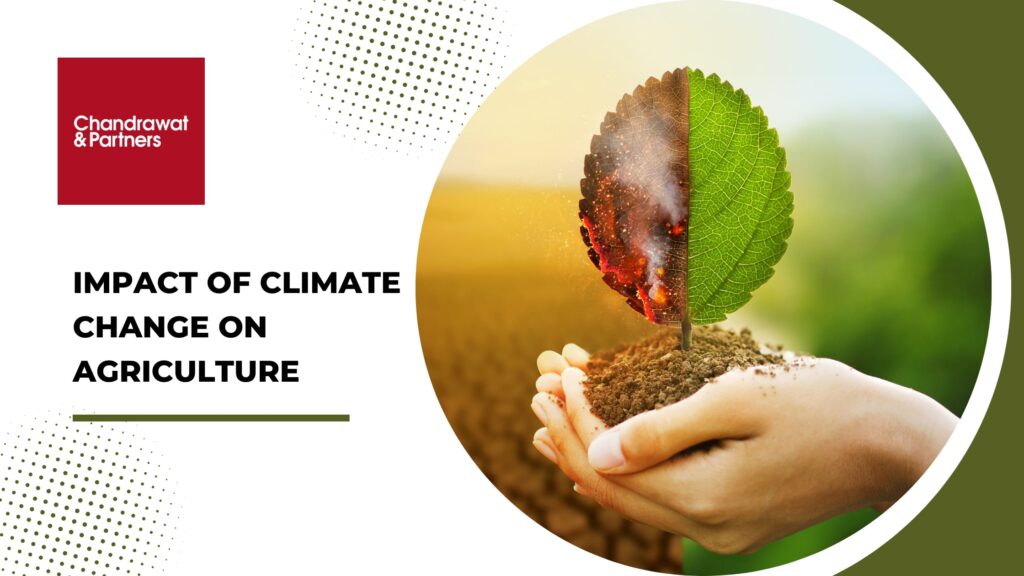Impact of Climate Change on Agriculture
Climate change is having a significant impact on agriculture, affecting food availability, access, and quality. The effects of climate change on agriculture are complex and multifaceted, and they vary depending on the region, crop, and farming practices. This will discuss the various ways in which climate change is affecting agriculture and the potential consequences for food security.
- Heightened Food Insecurity
As dry seasons get longer and water becomes scarcer, farmers aren’t able to grow or raise the food they rely on to earn an income and feed their families. In the Horn of Africa, for example, farmers have experienced five failed rainy seasons in a row, and over 80 million people in the region are estimated to be food insecure as a result of climate change.
Meanwhile, rising temperatures can also lead to spoilage and contamination, compromising the quality of goods. As disruptions to food production increase, the 1 in 3 people who already don’t have enough to eat will suffer most.
- Land Degradation and Water Scarcity
Changes in rainfall patterns, deforestation and overgrazing have detrimental and often irreparable effects on agriculture. Farmers are struggling to keep their animals healthy in drier, more extreme conditions. Lack of water and warmer temperatures make it harder for crops to grow, and soil is drying to dust. Land is gradually becoming less productive and more vulnerable to future shocks like drought, and competition and conflict over resources is increasing as farmers fight for claim to arable land and access to clean water.
- Reduced Yield
Farmers are reporting record-breaking losses. It’s predicted global food yields could decline by as much as 30% by 2050 if farmers aren’t able to adapt to the effects of climate change. These disruptions are not just a challenge for farmers — climate change affects the entire agriculture sector, leading to higher food prices and decreased availability of food worldwide.
- Increased Poverty
Climate change has a direct impact on farmers’ livelihoods: When crops and livestock are lost, so is income. Farmers in the world’s most vulnerable regions often already live at the edge of poverty, and the risk is growing as climate change accelerates. It’s estimated that 43 million people in Africa alone could be pushed into poverty by 2030 as crop yields continue to decline.
- Migration and Displacement
The conditions are so challenging that farming is no longer an option. Every year, a growing number of farming families are forced to leave their farms and fields in search of new work. In 2021, extreme weather uprooted more than 23 million people globally.
Additionally, in the world’s most vulnerable countries, conflict and competition over natural resources are increasing as climate change intensifies. When conflict breaks out, damage and destruction breaks up communities, drives farmers from their homes and increases the likelihood of unemployment.
In conclusion, climate change is having a significant impact on agriculture, affecting food availability, access, and quality. By implementing adaptation strategies and addressing the challenges faced by farmers and policymakers, it is possible to mitigate these impacts and ensure a more sustainable future for food production. However, this requires a concerted effort from all stakeholders, including farmers, policymakers, and researchers, to ensure that agriculture can adapt to the changing climate and continue to provide food security for the world’s population.
For more information or queries, please email us at
enquiries@chandrawatpartners.com





